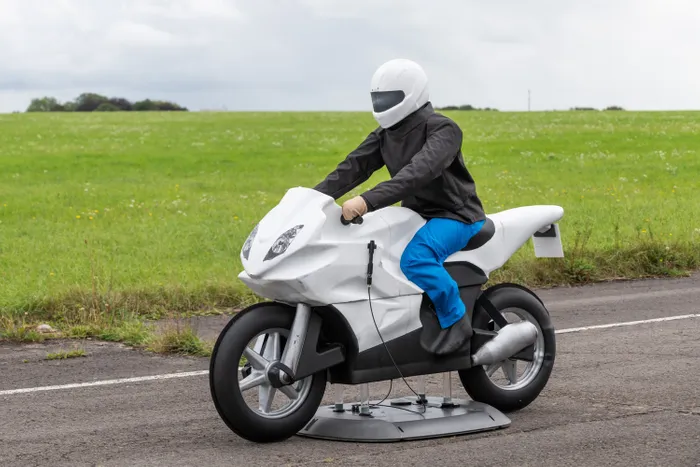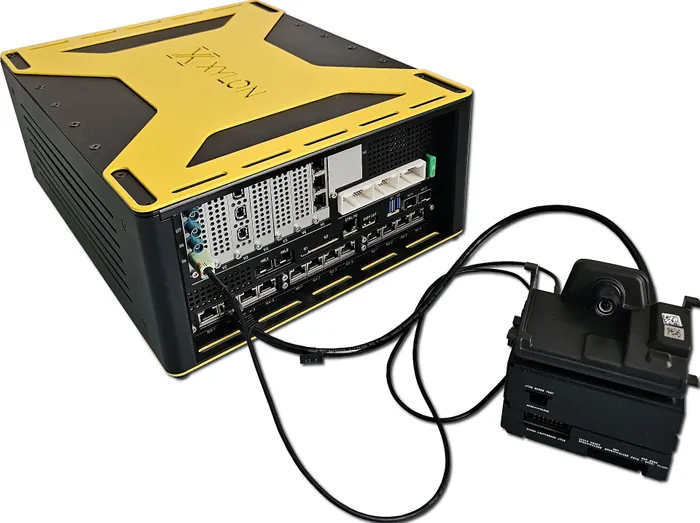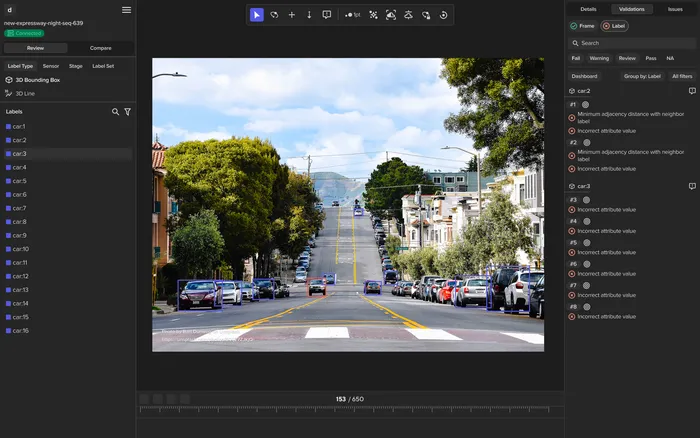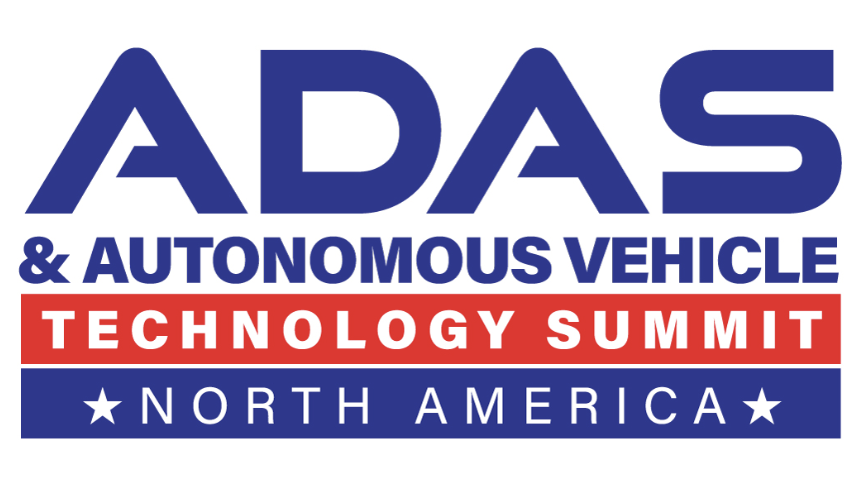It’s now just a month until ADAS & Autonomous Vehicle Technology Summit North America, a dedicated US event for leaders in ADAS, automated driving and convergent technologies, which will take place on August 27 & 28, 2025, at the McEnery Convention Center in San Jose, California.
The summit will showcase the latest products, technologies and services from across the advanced mobility ecosystem to accelerate scalable end-to-end product development and deployment, improve quality and safety, and reduce costs.
It’s the essential event for those wanting to maintain their competitive edge by keeping pace with innovation, technological advances and regulatory changes in a rapidly evolving industry.
Visitors can see cutting-edge developments in ADAS/AV software and hardware, processing, testing tools, artificial intelligence and V2V/V2X, with industry experts on hand from AB Dynamics, dSPACE, Deepen AI, ETAS, Keysight, Rohde & Schwarz, Xylon and more. Register for your free exhibition entry pass here.
Meanwhile, the conference (rates apply) will host 50+ speakers from OEMs, regulators and tech innovators, who will discuss the key topics concerning the development and testing of safe autonomous driving and ADAS technologies. Contributors will include Waymo, Plus, Zoox, Carnegie Mellon University, Torc Robotics, Uber, AWS, IBM, California DMV, PAVE, Woven by Toyota, GM and Nissan.
Exhibitor news
DRI (booth 4080) will unveil the Soft Motorcycle 360 during the summit. Designed for high-speed, high-accuracy testing, this powered two-wheeler target reaches speeds up to 80km/h and meets Euro NCAP 2023 motorcycle test protocols. Built with modular foam construction, it delivers safe impact performance, durability and repeatability, aligning with ISO 19206-5 draft standards.
Also featured is the Soft Bicycle 360, the latest addition to DRI’s Soft Target 360 family. Engineered to simulate realistic cyclist behavior in complex urban and intersection scenarios, it includes articulated limbs, lightweight modular foam and a rubberized skin to minimize vehicle damage. It integrates seamlessly with leading test platforms, including AB Dynamics’ LaunchPad range, and supports synchronized motion for precise scenario replication.
DRI will be co-exhibiting with sister company AB Dynamics, and will showcase the latest VRU testing solutions, including LaunchPad Spin and GTC Remote, built to meet the evolving demands of global ADAS and AV testing.

Meanwhile, Xylon (booth 2030) will be offering live demonstrations of its HIL setup for ZF’s forward-facing Smart Camera 6 at the expo – using raw and synthetic sensory data. With its flexible and modular architecture, Xylon’s LogiRecorder 3.5 automotive HIL video logger enables replay of all ZF smart camera interfaces, including the automotive LVDS video, CAN and ethernet data. It enables ZF engineers to iterate through different HIL simulation scenarios in a laboratory setup, and inject recordings into the ZF smart camera’s vision processor while simultaneously recording the Mobileye EyeQ6L-generated debug data.
HIL simulations with synthetically generated data offer better controllability and more economical testing, requiring fewer test-driven miles. The LogiRecorder enables the ZF simulation and test teams to stimulate their smart camera with synthetic data generated in a preferred simulation environment. Synthetic simulations provide developers with the freedom to test corner-case traffic situations until the control algorithms are fully perfected.

Visitors looking for help with ODD validation should seek out Deontic at booth 2035, which will be displaying its generative AI platform that the company states revolutionizes the validation and certification of autonomous systems. Tailored for the complex demands of the autonomous driving industry, it accelerates operational design domain (ODD) validation through advanced natural language processing, agent-based automation and deep integration with numerous simulation tools and standards such as OpenScenario and OpenDrive.
At the heart of Deontic’s solution is its ability to transform high-level, often ambiguous, natural language requirements into clear, testable, compliant simulation scenarios. This enables companies to move from manual ODD validation processes – often taking up to 60 days per ODD – to automated workflows requiring just six working days.
Deontic’s value lies in its ability to integrate seamlessly with existing validation pipelines, reduce dependency on large engineering teams and provide traceable, repeatable and regulatory-ready outputs. Currently in beta, Deontic positions itself as the foundational platform for certifying all forms of ‘physical AI’ beyond just vehicles, spanning drones, robotics and industrial automation and paving the way for safer autonomous technology at scale.

Santa Clara-based Deepen AI (booth 1030) specializes in safety-first data-lifecycle tools for ADAS and autonomous driving. As such it knows better than most how faulty labels can halt an entire vision program, yet most teams still hunt for errors frame by frame. At the summit in San Jose, visitors will be able to trial Deepen Validate, which is designed to remove such pain. The latest release merges auditing, validation and automated checks in a single console, on-prem or in the cloud. Smart sampling highlights the small fraction of data most likely to hide issues, while built-in detectors flag misclassifications, duplicates and drift as they happen. Deepen Validate turns label quality from a last-minute scramble into a continuous, confident development step. It adds to Deepen AI’s data stack, which also delivers annotation, calibration, anonymization and simulation tools for safety-critical perception teams.

Conference highlights
Through a mix of keynote presentations, live panel discussions, workshops and the latest case studies, the dedicated conference (rates apply) will provide one of the best networking and intelligence-gathering opportunities of the year. Delegates will be able to hear firsthand from the engineers and experts shaping the future, with exclusive insights from real-world deployments and pilot projects, through to the most advanced AI and simulation showcases, as well as the latest standards and regulations. Leading companies providing expert speakers include GM, Woven by Toyota, Nissan, Uber, Torc Robotics, Tata Technologies, Aptiv and Zoox.
A panel discussion titled ‘AVs and public acceptance: How can engineers help ready the public for widespread deployment?‘ will feature Dave Tokic, VP of corporate development at Torc Robotics, alongside Stephen Hayes, VP of autonomous, fleets and driver operations at Lyft; Francesca Favarò, head of safety best practices at Waymo; and Katelyn Magney–Miller, communications director at PAVE.
Peipei Zhao, Robosense’s president (North America), will present, ‘Reframing lidar: lessons from China’s deployment for global ADAS‘, in which he will will draw delegates’ attention to the fact that more than 150 Chinese production models are already equipped with lidar for ADAS and AD functionality, before sharing deployment lessons from China and how they can inform global ADAS strategies.
Another conference highlight will see Yuchuan Gou, a machine learning engineer at Zoox, discuss ‘AI model deployment and optimization in autonomous driving‘. This technical session will offer a deep dive into the deployment and optimization of AI models powering autonomous driving systems. After walking delegates through some industry-standard workflows, from model development to real-time deployment in embedded automotive platforms, Gou will move on to critical topics such as inference acceleration, quantization, pruning and runtime optimization on autonomous driving hardware.
You can read a full and exclusive event preview in the September 2025 issue of ADAS & Autonomous Vehicle International magazine.



